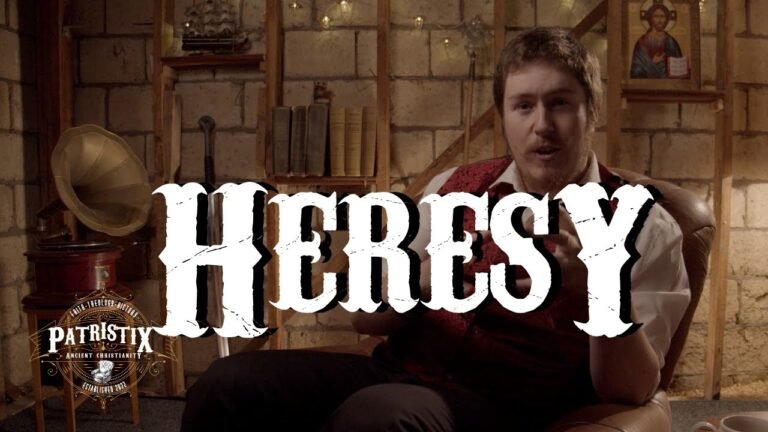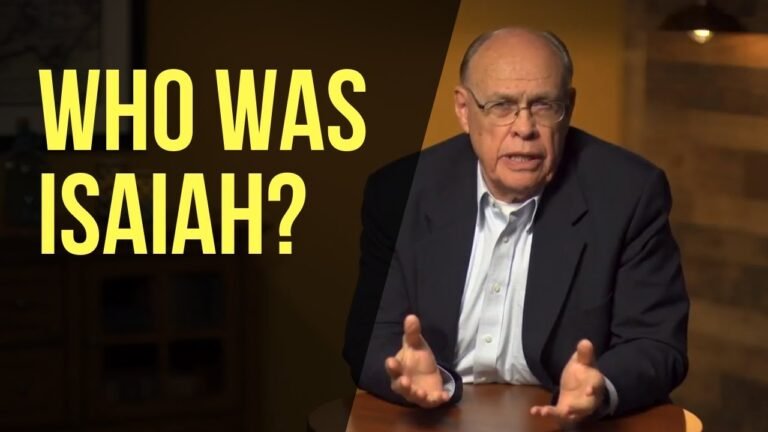Understanding Heresy: A Comprehensive Definition
Heresy, a term steeped in historical and theological significance, refers to beliefs or opinions that deviate from established doctrines, particularly within religious contexts. Often viewed as a challenge to orthodoxy, heresy can provoke intense debate and conflict, shaping the course of religious movements and societal norms. Understanding heresy not only reveals the dynamics of faith and dissent but also highlights the broader implications of belief systems in the quest for truth and identity. This article delves into the complex nature of heresy, exploring its definitions, historical examples, and its impact on both individuals and communities.
What is a simple definition of heresy?
Heresy refers to a belief or action that deviates from widely accepted norms, often viewed as incorrect or offensive by the majority. This term is commonly associated with religious contexts, where it denotes ideas that challenge established doctrines. For instance, suggesting an alternative viewpoint might be labeled heretical, highlighting the tension between innovation and tradition. Synonyms like unorthodoxy, apostasy, and dissidence further illustrate the concept’s implications, emphasizing the potential for conflict when one strays from conventional beliefs.
What distinguishes blasphemy from heresy?
Blasphemy and heresy are distinct yet related concepts within religious discourse. Blasphemy involves actions or statements that demonstrate profound disrespect towards God or sacred elements, often invoking outrage within a faith community. In contrast, heresy pertains to beliefs or opinions that diverge from the accepted doctrines of a religion, challenging the established theological framework. While blasphemy strikes at the heart of reverence, heresy questions the very foundation of belief, highlighting the complex interplay between faith, respect, and interpretation in religious traditions.
In what ways is heresy considered a sin?
Heresy is considered a sin primarily because it represents a departure from the fundamental truths of faith. When an individual embraces heretical beliefs, they elevate their personal interpretations above the divine truth, effectively placing their own ideas in the position of authority. This act not only distorts the essence of faith but also undermines the relationship between the believer and God, who is the ultimate source of truth.
Furthermore, heresy can be seen as a form of idolatry, as it shifts focus from God to self. The heretic’s desire for autonomy leads them to create a version of belief that aligns with their preferences, rather than submitting to the teachings that have been established through tradition and divine revelation. This self-centered approach not only damages their spiritual integrity but also risks misleading others who may look to them for guidance.
In essence, the act of heresy is a profound disconnection from the community of faith and the truths that bind it. It is a conscious choice to prioritize personal understanding over collective belief, which can erode the foundations of both individual faith and the wider spiritual community. By recognizing heresy as a sin, individuals are called to reflect on the importance of humility and adherence to the truths that have been passed down through generations.
Exploring the Boundaries of Belief
In a world rich with diverse perspectives, the boundaries of belief often shape our experiences and interactions. Each individual carries a unique tapestry of convictions, woven from cultural backgrounds, personal experiences, and spiritual journeys. This intricate web influences how we perceive reality and engage with others, creating both unity and division. Understanding these boundaries can lead to deeper connections and foster a more inclusive society.
As we explore the limits of belief, we encounter the transformative power of questioning. Challenging our own assumptions and embracing differing viewpoints encourages personal growth and broadens our horizons. It is through this process of inquiry that we discover common ground, allowing us to bridge divides and cultivate empathy. The willingness to listen and learn from one another enriches our lives and helps dismantle the walls that separate us.
Ultimately, pushing the boundaries of belief invites us to reflect on our shared humanity. It reminds us that while our convictions may differ, the underlying search for meaning and understanding unites us all. By fostering open dialogue and celebrating our differences, we can create a world where diverse beliefs coexist harmoniously, paving the way for collaboration, innovation, and a deeper appreciation of the richness of human experience.
Defining the Unconventional: Heresy Unveiled
In a world often bound by tradition and conformity, heresy emerges as a bold declaration of individuality and critical thought. It challenges the status quo, inviting us to question norms that have long gone unexamined. By embracing unconventional ideas, we spark innovation and foster a culture where diverse perspectives flourish. This act of defiance against established beliefs not only enriches our understanding but also propels society forward, proving that sometimes the most profound truths lie beyond the realms of accepted wisdom. In unveiling heresy, we celebrate the courageous pursuit of knowledge and the transformative power of dissent.
A Deep Dive into Doctrinal Dissent
Doctrinal dissent serves as a vital mechanism for the evolution of beliefs within any religious or ideological framework. It encourages individuals to critically engage with established teachings, fostering a culture of inquiry and reflection. This process not only allows for the exploration of diverse interpretations but also highlights the dynamic nature of faith, where questioning can lead to deeper understanding and personal conviction. As adherents navigate the complexities of their beliefs, dissent becomes a catalyst for growth and renewal, challenging the status quo and prompting meaningful dialogue.
However, the presence of dissent is often met with resistance, as traditionalists may perceive it as a threat to unity and orthodoxy. This tension can lead to intense debates within communities, as differing viewpoints clash over interpretations of doctrine. Yet, rather than undermining faith, these discussions can illuminate the richness of belief systems, revealing the layers of meaning that exist within them. Ultimately, embracing doctrinal dissent not only enriches individual spirituality but also strengthens the collective identity of communities by fostering resilience and adaptability in the face of change.
Heresy Explained: Myths and Realities
Heresy often conjures images of medieval witch hunts and religious persecution, yet its true essence is far more nuanced. At its core, heresy represents the divergence from established beliefs or doctrines, challenging the status quo in pursuit of deeper understanding. While often maligned, this dissent plays a vital role in the evolution of thought across various fields, including religion, philosophy, and science, pushing boundaries and prompting critical reflection.
The myths surrounding heresy often stem from fear of the unknown and the desire for conformity. Many view heretics as antagonists, but history shows that they are frequently visionaries who dare to question prevailing narratives. Figures such as Galileo and Martin Luther faced severe backlash for their revolutionary ideas, yet their challenges to orthodoxy ultimately paved the way for transformative shifts in perspective. This underscores the reality that heresy can be an essential catalyst for progress and innovation.
In a contemporary context, heresy continues to inspire debate and dialogue, inviting us to reassess our own beliefs. The digital age has amplified voices that challenge conventional wisdom, fostering a culture of inquiry that encourages diverse viewpoints. Understanding heresy not as mere rebellion but as a vital component of intellectual growth can empower individuals to explore new ideas and engage in meaningful conversations, enriching our collective pursuit of knowledge.
Challenging Orthodoxy: The Nature of Heresy
Throughout history, heresy has often been perceived as a threat to established norms and beliefs. Yet, it is within these challenges to orthodoxy that new ideas and perspectives emerge. Heresy forces society to confront its assumptions, sparking debates that can lead to profound transformations in thought and culture. By questioning the status quo, heretics become catalysts for progress, pushing the boundaries of what is accepted and encouraging exploration beyond the confines of tradition.
The nature of heresy lies not only in its opposition to orthodoxy but also in its ability to illuminate the limitations of prevailing ideologies. Heretics often find themselves standing at the crossroads of innovation and rejection, as they navigate the tensions between their convictions and societal expectations. This dynamic interplay highlights the delicate balance between maintaining order and embracing change, reminding us that the evolution of ideas is often fraught with resistance, yet essential for growth.
Ultimately, heresy serves as a vital force in the ongoing dialogue between tradition and transformation. It invites us to reflect on the nature of belief, encouraging a reevaluation of what we hold to be true. By embracing the uncomfortable questions raised by heretical thought, we open ourselves to a richer understanding of our world, acknowledging that the path to enlightenment often winds through the very challenges that heresy presents.
Heresy, often viewed as a challenge to established beliefs, invites a deeper exploration of faith, ideology, and the boundaries of thought. By understanding heresy not merely as dissent but as a catalyst for discussion, we can appreciate its role in shaping cultures and advancing societal progress. Embracing diverse perspectives encourages critical thinking and fosters an environment where innovation thrives, ultimately enriching our collective understanding of belief and truth.







